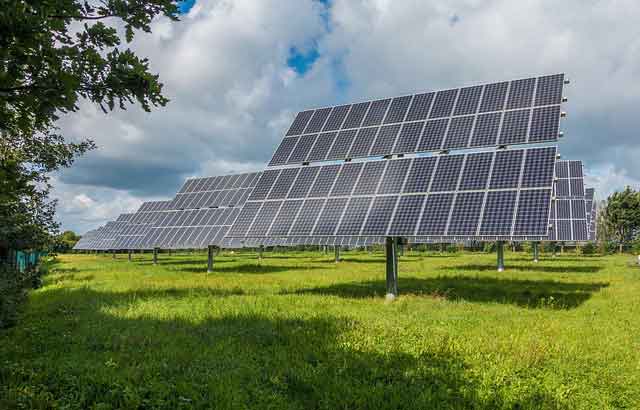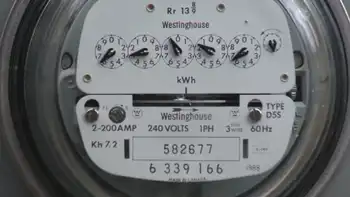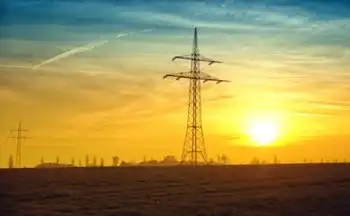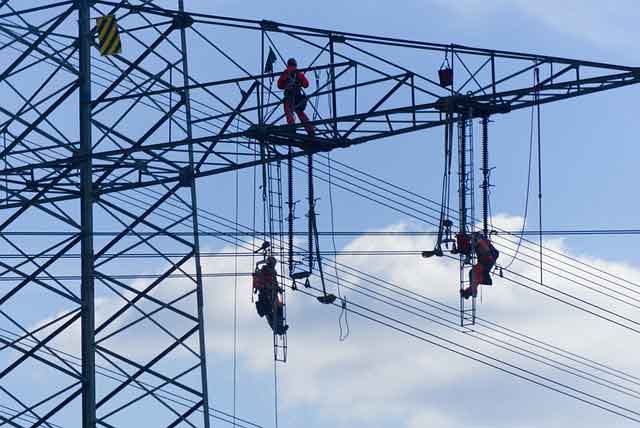The “push” to legalize solar cars in Ontario
By Toronto Star
NFPA 70b Training - Electrical Maintenance
Our customized live online or in‑person group training can be delivered to your staff at your location.

- Live Online
- 12 hours Instructor-led
- Group Training Available
Marcelo da Luz is only a few kilometres from the final stop in his 160-kilometre Power of One walk from Niagara Falls to Toronto, where he will pull the car to the premierÂ’s doorstep in hopes Dalton McGuinty will make it street legal.
The 42-year-old from Toronto says the Ontario government has made it virtually impossible to drive it legally in the province — demanding he put up signs on 3,000 kilometres of roads, or get letters from every local police force.
So he strapped a harness to his waist and is pulling the 213-kilogram car an average of 15 kilometres per day so he can tell the province in person that he believes it is stifling solar energy innovation by not allowing his made-in-Ontario car on its roads.
“Ontario has been fantastic, they have been the leader on so many fronts in terms of sustainability with a lot of green initiatives,” Da Luz said as he began the final stretch of his walk. “Unfortunately we haven’t seen that leadership in the Ministry of Transportation.
“This is an opportunity for us to develop new technology that we could be using every day. Engineers that could be developing projects like this, and secure the technology right here are moving away.”
Da Luz is a flight attendant and spent his lifeÂ’s savings, mortgaged his home, took out loans, and worked with engineers to build the car in 1999.
HeÂ’s since driven it across the continent, to freezing Tuktoyaktuk, N.W.T, the U.S.-Mexico border, the Florida Keys, and back to Canada, breaking a world record for distance traveled. The car, which can travel about 500 kilometres on a sunny day or 200 kilometres at night, runs on less power than a toaster, da Luz said. It can hit maximum speeds of 120 km/h.
The car measures just a few metres long, is covered in solar panels and looks like a small space ship. He was pulled over by police in Alaska when someone called to report a UFO.
Da Luz says the trouble with Ontario began back when the province placed a moratorium on solar cars in 2004 after a fatal accident.
Da Luz says fatal accidents in regular cars happen all the time, so one in a solar car shouldnÂ’t mean an outright ban.
Da Luz spent a month pumping iron at the gym before his Ontario journey, and is happy with the distance heÂ’s traveled since he began his walk on April 10.
“It’s okay on the flat terrain, downhill is great, but there’s a few gentle hills,” he said with a laugh. “It has been a great challenge physically. At the end, I’m having the best sleep of my life. When I lay down in my bed at night, I’m just out in no time.”
Da Luz, who knocks on strangersÂ’ doors each night to ask if he can store his car in their garage, has been receiving a Forrest Gump-type following throughout his journey as supporters and schoolchildren line roads to cheer him on.
“Run, Forrest! Run!” shouted Da Luz, laughing as he pulled the car on relatively flat terrain in Mississauga. Passing cars honked in encouragement and curious onlookers popped out of nearby stores to snap photos and ask da Luz what he was doing.
“It turned out to be a real life Forrest Gump story as I embark on this journey, and I start to walk, and all of a sudden I see people joining me, and it’s pretty cool,” he said.











